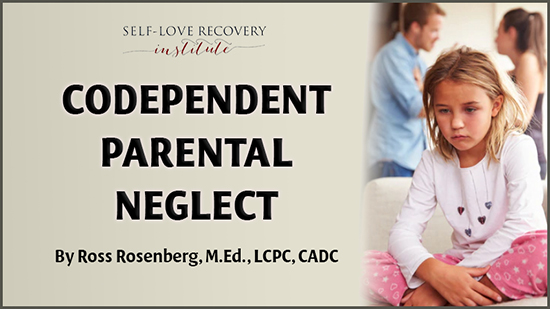Online Infidelity: Identifying, and Dealing with Cyber Affairs
Chicago Tribune
I was co-hosting a company-sponsored discussion last fall, open to the public, about coping with divorce. A member of the audience shared with the group that he had discovered his wife was involved in a cyber affair.
“Is that considered cheating?” he asked the room. “They never met in person. The whole affair was online.”
The man added that his marriage had ended partly because of it. Still, he needed clarification about whether that Internet relationship constituted infidelity.
He got the validation he was seeking. Several people in the audience nodded “yes,” followed by a response from our expert on hand, therapist and author Ross Rosenberg, who specializes in treating sex addiction.
“Cheating is when you are verbally, emotionally or physically intimate with somebody other than your spouse or partner,” said Rosenberg. “This can become an affair when there is a relationship where two people are getting their needs met outside of their marriage or relationship.”
Such an affair may involve virtual sex, yes — but not necessarily. An emotional betrayal can be even more damaging to a marriage than a physical one, said marriage counselor M. Gary Neuman, author of “Emotional Infidelity: How to Affair-Proof Your Marriage and 10 Other Secrets to a Great Relationship” (Three Rivers Press).
“I will have an easier time as a therapist if the couple walks in and the man or woman had random sex with a stranger than somebody who has found a best friend on the Internet and they haven’t even touched,” Neuman said. “That connection is a much greater rejection to the spouse, and it’s a much harder thing to heal in a relationship. The emotions have left the marriage and gone into the hands of someone else.”
Rosenberg concurred. “If two individuals have a satisfying relationship and periodically the man or the woman uses the computer to satisfy a sexual need, that isn’t an affair,” he said. “But when your sex life with your partner is being compromised because someone seeks their fantasies with the computer instead of with the spouse, and there is now a replacement, that’s a threat to the relationship.”
Making online affairs more attractive is the fact that they involve much less work and expense — you can “meet” anywhere, including your own home (which is in itself another type of betrayal), notes Brendan L. Smith in an article for the American Psychological Association, “Are Internet Affairs Different?” The freedom to fantasize, without the intrusion of reality, and the anonymity afforded by the Internet — also can be alluring.
Recognizing red flags
Here are some signs your spouse could be cyber cheating, from Neuman:
First you know, then the sharing stops. “People tend to tell their spouse early on about a person they may have connected with on the Internet or are interested in,” Neuman said. “Then they stop talking about them as their feelings grow and it starts to get inappropriate.”
Hiding devices. “If the laptop used to be in the kitchen, but now you can’t find it. Or when they stop leaving their phone out on the counter or on the nightstand like they used to. Even when they shower, it’s missing: that’s a sign.”
New passwords: “If your partner suddenly changes the password they’ve had for a long time, and won’t tell you what it is. This is a definite red flag.”
Clean inbox: “If the trash file is cleared out and there’s a lot of dumping of old emails, this could be a sign too,” Neuman said. “None of us has time to manage our texts and emails. If I’m finding the time to manage this, there’s something typically going wrong.”
Denial: “If you say, ‘You’re on your computer a lot,’ and they emphatically deny it, that’s a sign there could be guilt,” he said. “Because if they aren’t doing something inappropriate they won’t really protest.”
Coping with the problem
Is it possible to rebuild a partnership once the trust has been broken? Therapy is usually needed to address the problem and its fallout. The experts shared tips for coping with a cyber affair or flirtation, whether you’re the culprit or the victim — and obviously, this advice has relevance for anyone dealing with infidelity of any kind:
For the victim: Have compassion for yourself, said relationship expert Stacey Martino (loveandpassioncoach.com). “They’re going to be in shock and betrayal. Faced with the fear of having their life turned inside out, wondering how they’re going to survive without their partner if things don’t get resolved. Self-compassion is essential right away to get to the next level.”
Rosenberg added that a breach of trust can trigger other emotional issues if they haven’t been resolved. “If you had abandonment issues or abuse as a child, and you haven’t recovered from it, this triggers it. What you have is a response that is not only bad because someone hurt you, but it (also) has layers of hurt. You need to look at those unresolved issues.”
For the cheater: Be accountable for your actions. Healing can’t begin unless the person who is caught admits to their wrongdoing. “It starts with owning the event itself, without casting any blame,” Rosenberg said. “The relationship work that needs to happen requires accountability, remorse and empathy. The least the person who crossed the boundary can do, is to have empathy for the person who discovers it and express genuine remorse.”
But this can be complicated if the person who is caught doesn’t consider the cyber relationship to be an affair, he said.
“The man or woman who wants to say, ‘But I never met them’ is someone who is in denial or trying to manipulate. That is part of a bigger problem that needs to be resolved with professional help,” he said. “What’s needed is a neutral party to explain that this type of relationship is hurtful and harmful.”
For the cheater: Understand the trauma. “Finding out your spouse has cheated is traumatic, and trauma kind of lingers,” Rosenberg said. “People underestimate that trauma because no one talks about it. How do you solve trauma? You have to understand what the person went through and give them the opportunity to let it go. So that needs to be addressed, preferably with a therapist.”
For the victim: Don’t hang on to the blame game. “People hold on to the bitterness because they become addicted to the bitterness to avoid the pain they feel,” Martino said. “And they don’t want to take any personal responsibility for fear that the end result of that sentence would be ‘Because you’re not worth loving.’ (But) as long as you’re blaming others, your life can’t change.”
No more hiding. Digital devices need to move into public areas of the house. With both partners having full access to the content therein.
Resist the urge to broadcast your troubles. “One of the worst things you can do is tell everybody in your world about this when you’re really raw,” Martino said. Later, when you both “have worked together to get through it, (those) other people in your life might say, ‘Are you kidding me?!’ They might not be able to cross that bridge of forgiveness with you.”
Forgiveness isn’t easy. “Forgiveness is a choice, it’s not mandatory,” Rosenberg said. “When we say, ‘You have to forgive,’ that puts pressure on someone to meet an emotional end point before they’re ready or want to.” Forgiveness is always recommended for a relationship to rekindle and thrive again, he said. But some people can’t get there immediately.
Communicate. Neuman added that communication needs to remain the priority throughout the healing process — and beyond. “You would never say to your third grader, ‘Hey kid, I really love you but I’m going to be involved with this work project for a few years, so when it’s done we’ll catch up and I’ll be really involved with you again.’ That’s absurd,” he said. “But it’s what we do with our marriages all the time. To me it’s a very simple mathematics equation: the more energy that goes (outside the marriage), the less energy goes into your marriage.”
Remain optimistic. Nothing is hopeless, Martino said. If both parties are willing to work on their issues, anything is fixable. “Whatever happened yesterday is not happening today,” she said. “The worst you could imagine could transpire, and if both people would like to rebuild, absolutely any relationship can come back from the edge.”
jweigel@tribpub.com
Twitter @jenweigel
Copyright © 2015, Chicago Tribune




